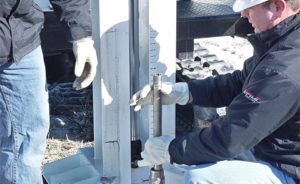
Site characterization is the foundation of most environmental projects, whether they are
focused on long-term monitoring, risk assessment, remediation, or some other goal. It is
during site characterization that the most basic information regarding site conditions,
and the very important data that guide decisions made during these projects, must be generated.
Inadequate preparation and planning often lead to incomplete site characterization, resulting in the need to return to the site to gather additional data, which leads to inefficiency and cost overruns. Generating insufficient data, or data of substandard quality, often results in developing inaccurate or misleading conclusions regarding site environmental conditions, which can delay appropriate responses to the problem and result in an increased risk to human health and the environment. This can also result in poorly conceived monitoring or remediation program designs and, ultimately, increased costs or even complete failure of the monitoring or remediation program.
To reduce uncertainty regarding site conditions and to increase confidence in decisions based on the data collected during an environmental site characterization program, it is important to collect a large quantity of high-quality data focused on meeting the objectives of the project. It is also important to have experienced environmental professionals to interpret these data to construct a three-dimensional conceptual site model (CSM), which accurately depicts site environmental conditions.
As the foundation for monitoring, risk assessment, and remediation projects, environmental site characterization must provide critical sets of data to allow efficient and cost-effective design and implementation of these projects. The data collected during site characterization are generally keyed to establishing environmental conditions at a site, both ambient and man-impacted, in either a specific medium (i.e., soil, ground water, surface water, or air) or multiple media, over space at a single point in time.
This “snapshot” view of site conditions serves as a baseline and is the basis for further project work at the site. If further work is required at a site, as is often the case, the next step is normally monitoring. The goal of monitoring is to provide information on changes in environmental conditions (i.e., ground-water levels or variations in concentrations of specific analytes) at the site or in a specific medium, over time, usually at fixed locations (i.e., monitoring wells for ground water). This information, in turn, is often used in making decisions regarding the need to do additional work at the site, usually based on potential risks posed by site conditions that may require remedial action (e.g., a plume of ground-water contamination moving toward a water-supply well). This reflects a maturity of the site investigation from characterization and risk assessment to long-term monitoring and remedial action to address risk.
Source:
Coordinator: EnvGuide Team
